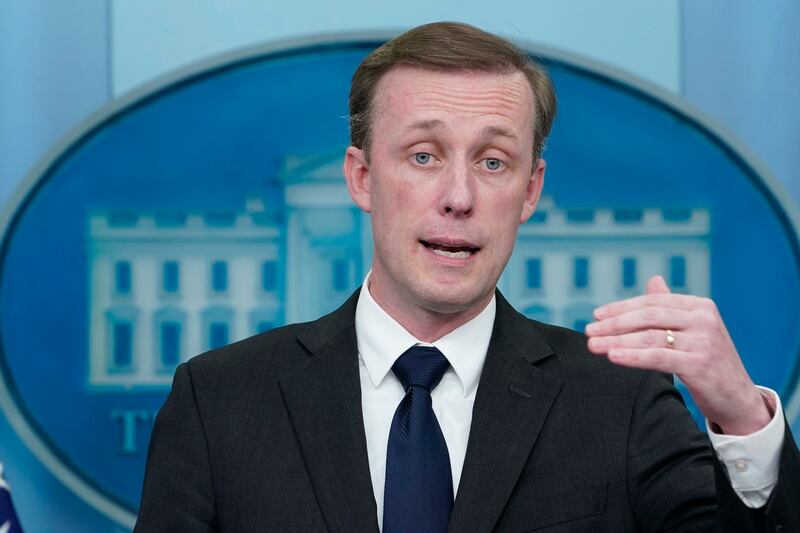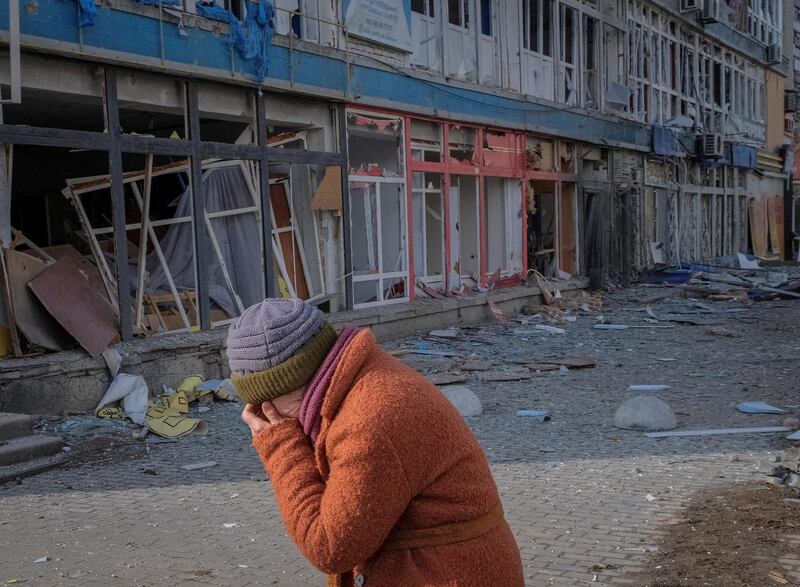China’s foreign ministry has accused the United States of hypocrisy after a Biden administration official over the weekend warned Beijing of “real cost” if it provides lethal aid to Russia for use in Ukraine.
Speaking to CNN on Sunday morning, National Security Adviser Jake Sullivan said China's leaders "tie themselves in knots" when it comes to the Russia-Ukraine conflict because they want to support Moscow without being seen by the wider world as aiding an invasion.
“Beijing will have to make its own decisions about how it proceeds, whether it provides military assistance,” Sullivan said. “But if it goes down that road, it will come at real cost to China, and I think China's leaders are weighing that as they make their decision.”

In response, Chinese foreign ministry spokesman Mao Ning noted to reporters at a press conference on Monday that the United States was itself responsible for providing lethal aid to the conflict.
“On the Ukraine issue, China has been actively promoting peace talks and the political settlement of the crisis,” Mao said. “The U.S. is in no position to point fingers at China-Russia relations.”
She compared the situation in Ukraine to Taiwan, which Beijing regards as a renegade province and has vowed to recapture.
“In addition to pouring lethal weapons into the battlefield in Ukraine, the U.S. has been selling sophisticated weapons to the Taiwan region in violation of the three China-U.S. joint communiqués,” Mao said. “What exactly is the U.S. up to? The world deserves to know.”
War of words
The latest war of words between China and the United States comes after a week of vague claims by American officials that Beijing is at least considering providing lethal aid to Russia for use in Ukraine, with unconfirmed reports about plans to provide "kamikaze" drones.
U.S. officials have declined to provide any details of the intelligence they claim shows Beijing considering the option, citing operational secrecy, and some have said they hope it amounts to nothing.
But the provision of lethal aid to Moscow to help in its foundering invasion of Ukraine could blow open Beijing’s recent diplomacy.
After declaring a “no limits” relationship with Moscow in the weeks leading up to the invasion a year ago, Beijing has more recently attempted to present a front of neutrality in the conflict, and last week even released what it termed a peace proposal.
But that came just days after Chinese foreign policy chief Wang Yi was in Moscow to visit Russian President Vladimir Putin, which was itself just days after U.S. President Joe Biden made a surprise visit to Kyiv to meet with Ukrainian President Volodymyr Zelenskyy.

American officials have also noted Wang did not make an equivalent trip to Kyiv before issuing the proposal, and say China was trying to have it “both ways” in a conflict where one side is the clear aggressor.
“China is trying to broadcast and disguise itself in this veneer of neutrality, even as it deepens its engagement with Russia in key ways: politically, diplomatically, economically, and potentially in the security realm as well,” State Department spokesman Ned Price said on Wednesday, before alluding to China’s designs on Taiwan.
The spokesman noted what he said was the clear source of the growing Russia-China “nexus” since last year’s Ukraine invasion.
“They share an intent,” he said, to return the world “to a previous era in which big countries could bully small countries, borders could be redrawn by force – an era in which might could make right.”
New world order
Despite the claims from senior officials about Beijing’s deliberations over lethal aid provision, on Friday – the one-year anniversary of the invasion – Biden himself appeared to downplay the intelligence.
"I don't anticipate a major initiative on the part of China providing weaponry to Russia," Biden told ABC News at the White House.
But he said there would be consequences if Beijing went ahead.
“We would respond,” Biden said.
Some 14 million Ukrainians have been displaced from their homes since Russia's February 2022 invasion and at least 20,000 civilians have been confirmed killed or injured, according to U.N. estimates, even as U.N. officials say the true number is likely much higher.
Gen. Mark Milley, the chairman of the Joint Chiefs of Staff, late last year said at least 100,000 Russian troops and 100,000 Ukrainian troops had also been killed in the war, but the real number is unclear with Ukrainian and Russian officials giving vastly different figures.
But U.S. Secretary of State Antony Blinken has said he does not believe the world order is devolving into a second Cold War, with two superpowers vying for strategic supremacy through a proxy war.
"I don't think it reflects the current reality, in a few ways," Blinken told an event hosted by The Atlantic on Thursday, noting that China and the United States have "fundamental interests in common" and are too "integrated" in terms of trade to use the "Cold War" label.
But he said China and Russia were trying to rewrite global norms.
“It's a competition, really, to shape what comes next – what comes after the post-Cold War era, which is over. And China's vision for a world order is fundamentally different from ours,” Blinken said, adding that a principle was at stake if Russia’s invasion succeeds.
“It not only poses a threat to Ukraine and its people,” he said, “but to peace and security around the world, to the extent that other would-be aggressors get the wrong message from what Russia is doing.”
Edited by Malcolm Foster.

